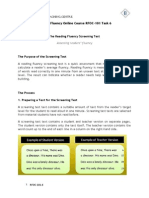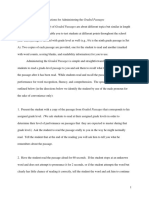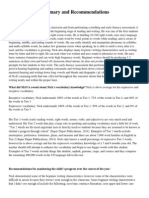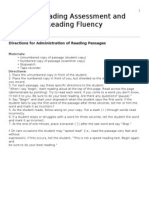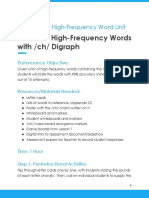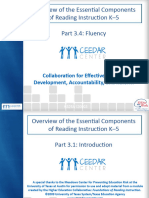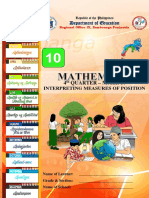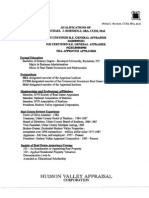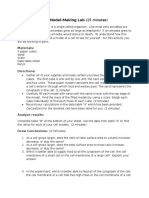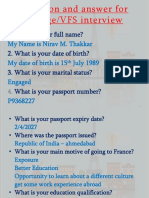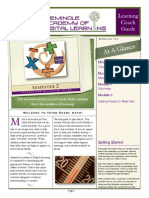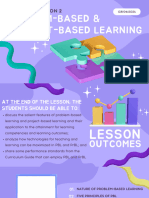0% found this document useful (0 votes)
140 views3 pagesUFLI Fluency Check Lessons 42 53 Digraphs
UFLI is piloting Fluency Checks to assess students' reading development, focusing on oral reading fluency (ORF) through decodable passages. The assessments are designed for individual administration, measuring words correct per minute (WCPM) to track progress and inform instructional decisions, without being used for grading. Teachers are encouraged to provide feedback on the pilot version and utilize fluency data to support student reading development.
Uploaded by
terrjin1Copyright
© © All Rights Reserved
We take content rights seriously. If you suspect this is your content, claim it here.
Available Formats
Download as PDF, TXT or read online on Scribd
0% found this document useful (0 votes)
140 views3 pagesUFLI Fluency Check Lessons 42 53 Digraphs
UFLI is piloting Fluency Checks to assess students' reading development, focusing on oral reading fluency (ORF) through decodable passages. The assessments are designed for individual administration, measuring words correct per minute (WCPM) to track progress and inform instructional decisions, without being used for grading. Teachers are encouraged to provide feedback on the pilot version and utilize fluency data to support student reading development.
Uploaded by
terrjin1Copyright
© © All Rights Reserved
We take content rights seriously. If you suspect this is your content, claim it here.
Available Formats
Download as PDF, TXT or read online on Scribd
/ 3





